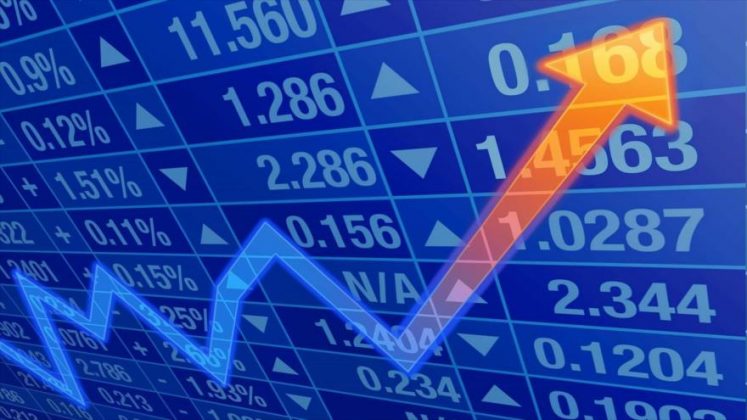EDITORIAL: The Stock Market Growth or Economic Bankruptcy of the Iranian Regime

Written by
Staff Writer
The stock market growth
Iranian regime’s President Hassan Rouhani considers the rise of the Tehran Stock Exchange as one of his economic miracles and by lying claims that the enemies do not see this success. Last week, it was announced that the total stock index on the Tehran Stock Exchange had grown by a staggering 80 percent, and the stock market index was growing by an average of about 100,000 units each week.
This is a strange phenomenon that is not relevant to the economic conditions of Iran because all economic indicators in Iran are currently very negative.
The inflation rate is 45 to 50 percent, the economic growth rate is less than 7 percent. After the outbreak of coronavirus, more than 3 million people lost their jobs, and according to the Parliamentary Research Center, the number will reach 6.4 million. Oil revenues have almost reached zero. Not only there are no foreign investments, but instead, the capital flight continues, and … in short, all the economic indicators justify the crash of the stock market, not its spike.
So, the question is, the rise in the stock market, as the president of the regime claims, is one of his miracles, or is the sign of the regime’s economic bankruptcy?
The government is facing a terrible budget deficit of 1,500 trillion tomans, and in order to provide this budget deficit, on the one hand, for this year, it intends to issue 800 trillion tomans in government bonds and sell 50 trillion tomans in stock. On the other hand, it is selling the shares of state-owned companies and government assets in the stock market.
The state-run Jahan Sanat Daily on May 4, described the move as “Privatization in new clothes” and wrote: “The government is in a dire financial situation … it has lost hope in the revenue from crude oil sales and is not resorting to selling futures.”
“The government has a big plan for selling the assets,” writes the state-run Daily Javan. “Public institutions, pension funds, and the Execution of Imam Khomeini’s Order also have plans to sell their companies, and so the first financial intermediation fund will be provided to the people.”
Farhad Dejpasand, Minister of Economic Affairs and Finance estimated the value of the government’s assets at more than 7000 trillion tomans and added: “If 20 percent of the assets can be transferred, it will be 1,400 trillion tomans.” This number is almost equal to the government’s budget deficit. But in an open letter, Ahmad Tavakoli, member of the Expediency Council, described these transfers as a great betrayal and said, “After the looting of the nation’s property in the name of privatization, now they want to use the public-private partnership to plunder all the assets of the nation, including schools, hospitals, stadiums, universities, etc., whether they have been completed or under construction.”
To clarify how the looting works, Tavakoli adds: “The Minister or Director-General can offer an 80-percent discount to deprived sectors and 50 percent to other areas. But it is clear that these major buyers are the same gangs affiliated with power centers, which have already become owners of large industries and complexes at very low prices. In one example, the Haft Tappeh Sugarcane Company with 24,000 hectares of agricultural land and more than 5,000 personnel was sold with a down payment of 60 billion rials in February 2016,”
People are the victims of this fraud scheme
Meanwhile, the people and the small businesses are the victims of this fraud scheme. The Rouhani government has cut interest rates from 25 percent to 12 percent, while inflation is more than 40 percent, forcing small business owners who see their assets melting, to move their capital to a safer location. But in the face of an unprecedented recession, where the currency, gold, housing markets, and virtually all other markets have come to a grinding halt, the only way left for the regime to fill its coffers is to go to the stock market and offer an attractive prospect of 30-percent profits to share buyers. But we’ve already seen this scenario play out with credit institutions, who took a large sum of money from investors and then disappeared by filing for bankruptcy. This is now happening again with the stock market.
After a while, this bubble will pop, and the stock market owners will have nothing in their hand, but some useless pieces of paper. In other words, the rise in the stock market index is a bubble that the regime has set up to despair its economic bankruptcy and to solve its daily problems.
Once the stock market bubbles pop, the small business owners and the companies and government agencies that have been offered to the stock exchange will become the property of the major buyers. And the major buyers are the mafia gangs, led by the Revolutionary Guards (IRGC), and the institutions controlled by the regime’s Supreme Leader.
Of course, in the meantime, by looting people’s savings, the government is hoping, in short term to temporarily solve its budget deficit problem but it will soon sow the seeds of another major upheaval.
Emphasizing that the main goal of the government is to generate revenue from the transfer of ownership of enterprises and the rapid provision of budget deficits, the Parliamentary Research Center said: “Although this mechanism will solve the short-term problem of the government easily, it will create bigger problems for the country in the future.”
This “big problem” is millions of asset losers who will come to the street together with the army of the poor and this time, like the story of the shareholders of credit institutions, the regime is no longer able to answer them by printing banknotes.

